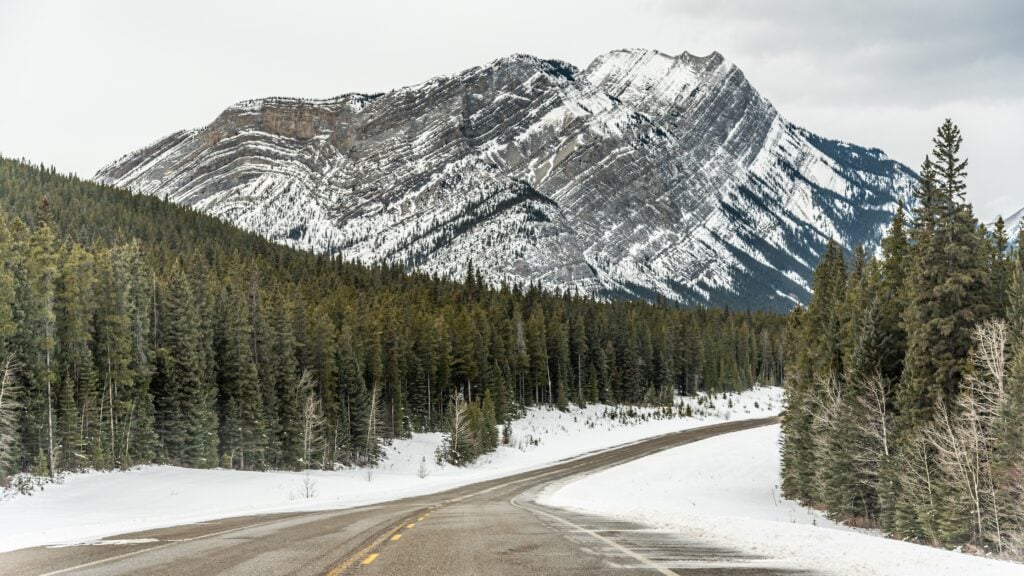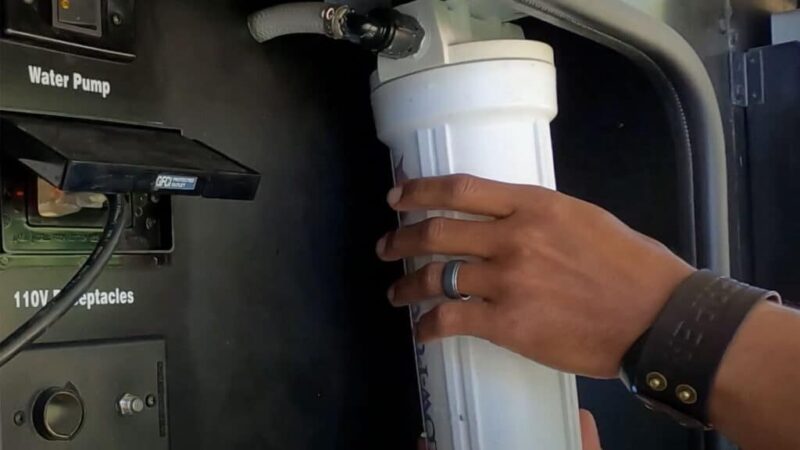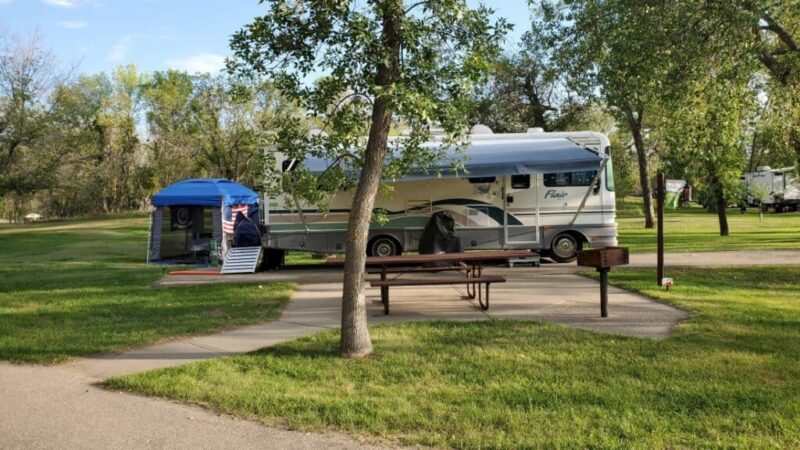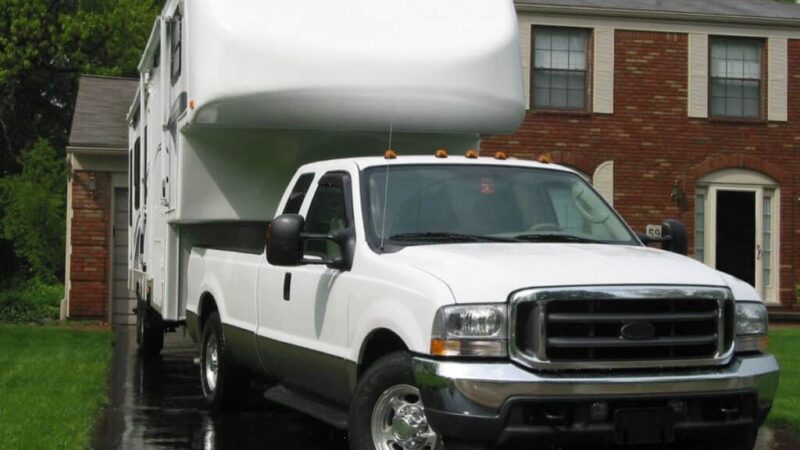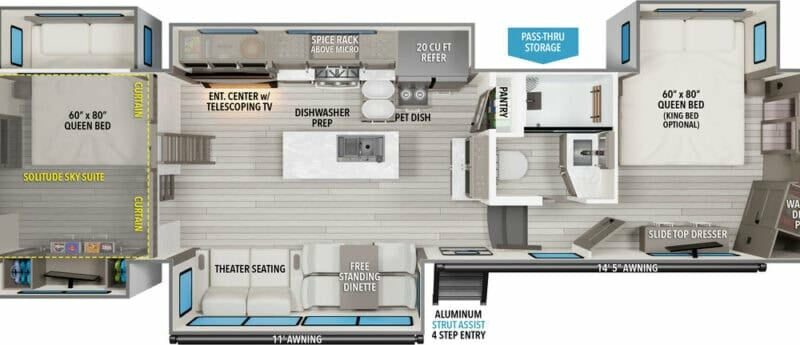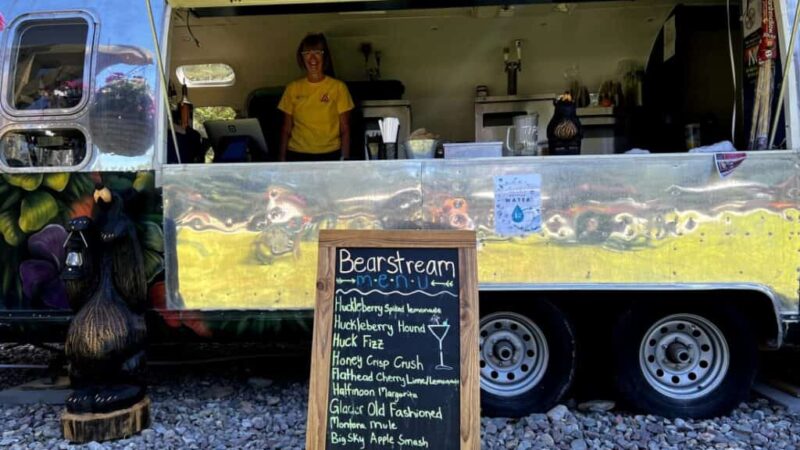Winter RVing in Canada: 20 Tips For Camping in The North
You’re probably wondering “Why would anyone want to go winter RVing in Canada” The truth is, not everyone flies south when temperatures drop. A few hearty RV travelers know that winter RVing is one of the best ways to enjoy spectacular scenery, abundant wildlife, and landmarks that aren’t crowded with tourists. But for RVers like me who are willing to go camping in the cold, there’s nothing like enjoying the warmth of our rolling homes after a long day snow machining, skiing, or ice fishing.
However, be warned: if you decide to try cold weather camping, you should know that in Canada winter can be miserable and even deadly if you aren’t properly prepared and well-equipped. To help you have a great cold-weather RVing experience, I curated 20 of the top winter RVing tips from some of Canada’s expert winter RVers. Here is what they told me:
RVer’s Top 20 Tips to Enjoy Winter RVing in Canada
Making the most of cold-weather camping starts from the time you decide to give it a try. From planning your winter RVing route to what to cook in the RV oven, here’s how to form a good plan for a great time.
Trip planning: how to make a fail-safe itinerary
If you don’t like sub-zero temperatures, head West where temperatures are milder. Vancouver Island, BC and the smaller Gulf Islands along it’s coast have much kinder winter weather than the rest of BC. There is wildlife and beautiful scenery everywhere you look on Vancouver Island. Mule Deer, Roosevelt elk, bald eagles, marine mammals, wolves, cougars and black bears all make their home on Vancouver Island.
When you want to take advantage of favorable snowy conditions, consider heading to Whistler, a winter wonderland offering stunning alpine landscapes and lots of snow for your favorite winter pursuits. Whistler RV Park and Campground is one of the best options for winter mountain camping in BC.
Winter RVing is a bit different from summer RVing but still gives you a great experience of all that Whistler has to offer at a low cost and just far enough away from the hustle and bustle to enjoy being out in nature and seeing all the stars at night.
Check the weather forecast before you leave. Most (but not all) of our experts agreed that RV camping when it’s less than -4 degrees Fahrenheit will bring more misery than happiness. RVs do not do well in sub-zero temperatures either.
Double-check driving conditions before you go. Be aware that road conditions can change in a heartbeat in a Canadian winter, so re-check those road conditions an hour or so before you depart.
Let other people know about your route. Don’t head out without informing friends and family where you are going, and how long you plan to be there. If you’re using RV LIFE Trip Wizard, send them a link to your itinerary.
The RV: Is your rig prepared for cold-weather camping?
Your RV needs special preparation for winter conditions. Use snow tires and carry tire chains if you are going to the mountains. All-season tires aren’t recommended for the snow and ice that are part of Canadian winters. Snow tires and tire chains for RVs are mandatory on most highways after October 1st.
If you are adventurous enough to drive your RV on the Alaska Highway in winter, carry extra fuel. Many service stations are closed in winter.
Bring enough food, bedding, clothing and propane to last up to a week in case you get stranded.
Test your engine block heater, which will keep your engine from freezing if it gets to 5-degrees Fahrenheit. If you drive a diesel-powered rig you’ll need to plug in when it hits about 10-degrees.
Carry an extra indoor-safe propane heater and extra propane cannisters. Be prepared to stay warm without electricity in case power goes out during a storm.
Propane freezes at -4 degrees. Insulate your propane tanks and use 40-watt light to keep them operational.
Use heat tape on all exposed pipes and tank heaters on tanks. Carry extra water and place the containers inside the warmest area of your RV, just in case your plumbing freezes.
Drain and insulate the exterior shower.
Insulate your windows and doors. You can either use a window insulation kit to shrink wrap your windows. or use Reflictix insulation. It’s a silver, insulated bubble wrap that can be cut to fit your RV windows and taped into place with painters tape.
At the campsite: staying warm and having fun
Park your RV in the sun whenever possible. You’ll be amazed at how much a good winter sun can heat up your RV.
Place support boards under your RV tires. These boards will prevent your RV tires from ‘sinking’ if the ground thaws.
Prep your RV bedding. An electric blanket under your bed sheets will help to keep you cozy at night. Fleece bed sheets will keep you toasty warm. And let the dog(s) on the bed to stay really warm!
Use an indoor-safe RV heater to boost your heating power.
Dress in layers. Each layer will hold a layer of warm air, and will help to keep you warm. Merino wool long underwear is a good base layer for cold temperatures. Avoid cotton fabric. It gets damp and won’t keep you warm when temperatures are below freezing. Mittens will keep your hands warmer than gloves, and insulated boots are a must. Get a bulk package of disposable hand and foot warmers. These items are also indispensable for cold weather RV camping.
Talk to RVers in Canada for more tips, and get ready to enjoy the beauty and serenity of Canadian winter RVing. Some of the country’s best parks and destinations are quiet and usually unoccupied this time of year, so make the most of it!
The post Winter RVing in Canada: 20 Tips For Camping in The North appeared first on RV LIFE.

